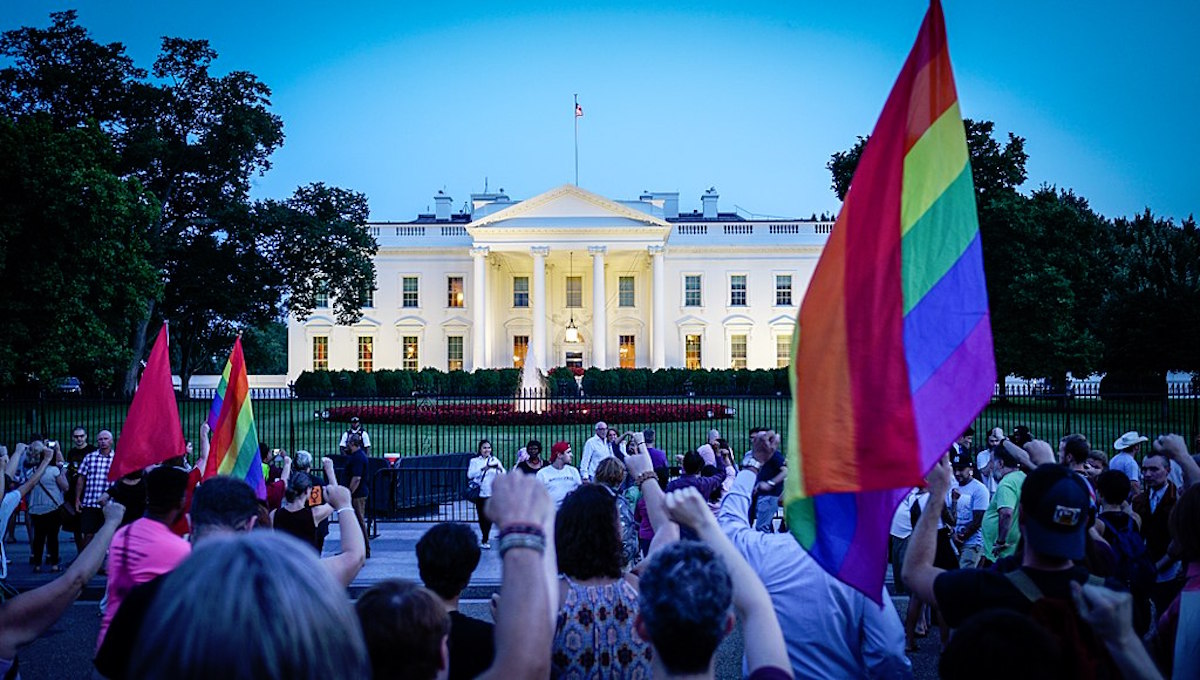After hearing news of Sunday’s leaked Health and Human services memo proposing to limit the definition of “sex” under Title IX — thereby proposing trans people out of existence — I not only looked for responses from major news outlets and LGBTQ groups, but from Rabbi Twitter.
I do this for two reasons: One, Jews have tended to respond with a roar to the many atrocities of the Trump administration. And two: Every time a discussion of LGBTQ rights enters the national conversation, it’s attended by that tired murmur of amateur Bible scholars citing Leviticus. Jews whose profession is knowing things about Judaism and Jewish life have to be on their guard.
Keshet leaped into action, posting a “Trans Jews Belong Here” sign for people to download and post in their homes and workplaces. The impulse to show support publicly seemed all the more urgent after reading S. Bear Bergman’s sobering response, which invoked the Nuremberg Laws. The proposal as written, Bergman writes, may suggest allowing discrimination against trans people under the umbrella of Title IX — that is, in educational situations where an institution receives funding from the federal government — but “that’s not the worst of it.”
Bergman, who identifies as gender nonconforming, sees the memo as the first step toward a future in which “the US government [refuses] to allow trans people to change passports and social security information based on our gender identities, and requires those of us who already have changed our documents to return our current passports and have them invalidated.” On National Coming Out Day, before news of the memo even broke, many circulated stories of the Nazi destruction of sex and gender researcher Dr. Magnus Hirschfeld’s institute and library — reminders that on the eve of Hitler’s rise to power, people with non-normative gender identities were targeted early.
Meanwhile, Keshet board member and educator Rabbi Becky Silverstein highlighted the room Jewish texts make for a range of genders. For the ancient rabbis, Silverstein writes, “male and female God created them” was subject to enough grammatical ambiguity to include a whole host of gender variation, including both male and female. As I’ve written about before, the Mishnah describes half a dozen categories between male and female.
But beyond looking to history for what comes next, and Jewish texts for trans affirmation, Silverstein as well as religion scholar Dr. Rebecca Epstein Levi pointed out that Jews must step up for the trans community not only because the texts make room for trans inclusiveness, but also because of what our tradition says about how we should treat other humans, particularly humans who are suffering, in the Jewish community.
Silverstein cites Pirkei Avot 2:4, where Hillel teaches al tifrosh min hatzibur, do not separate yourself from the community. “I understand this to mean both that I must not separate myself from the community,” he writes, “and that the community must not create conditions that push me out.”
Epstein Levi takes it a step further, looking to the story of Cain and Abel. After Cain kills Abel and utters his famously equivocal, “Am I my brother’s keeper?” God replies, “What have you done? Your brother’s blood cries out from the earth!” Epstein Levi writes that Cain’s reply isn’t just evasive and untruthful; it’s an attempt to wish Abel’s body away. When God reminds Cain of the physicality of his brother’s blood on the ground, Epstein Levi says, we can read this as God “stand[ing] on the side of those whose suffering is embodied, whose enfleshed reality is being erased by…imagined fears.”
In other words, conservative fear-mongering about the imaginary threat of trans and non-binary influence is up against the very real, physical threat of anti-trans violence. If there’s anything Jewish tradition can get behind, it’s that the erasure of another human from memory is as bad, or perhaps worse, than killing them.
Image via Ted Eytan



